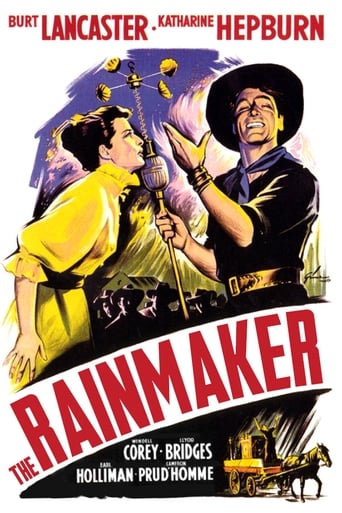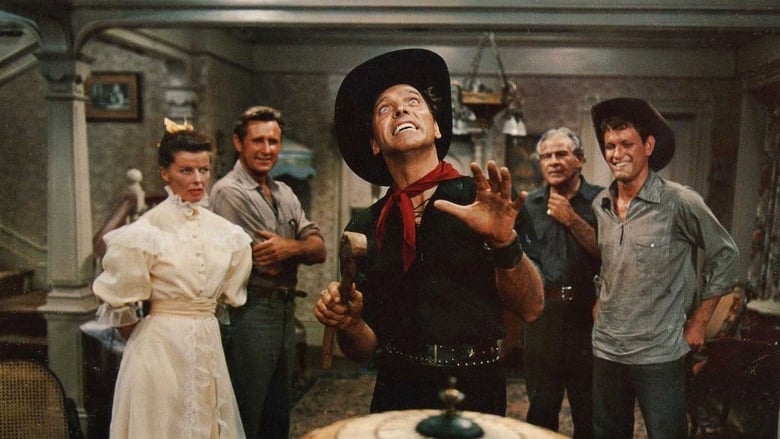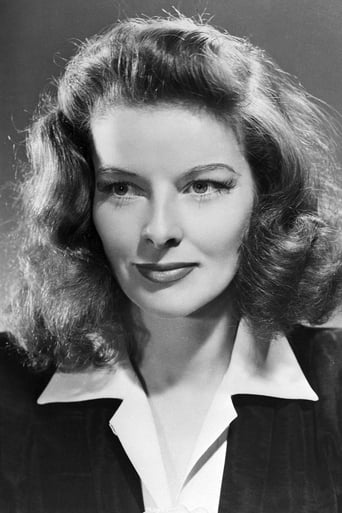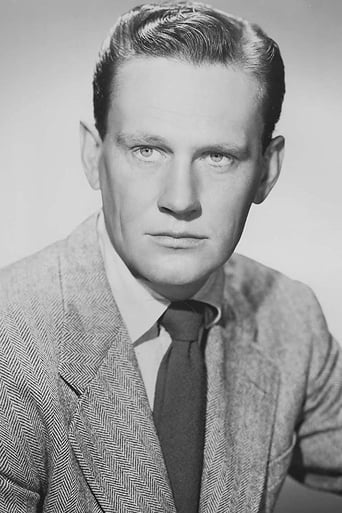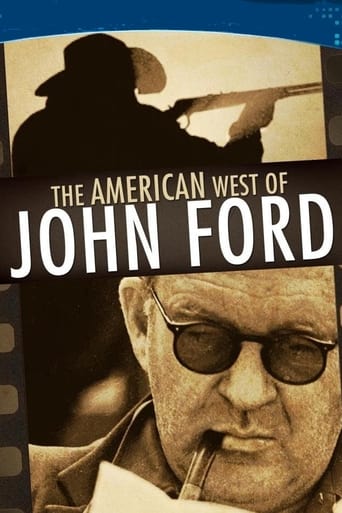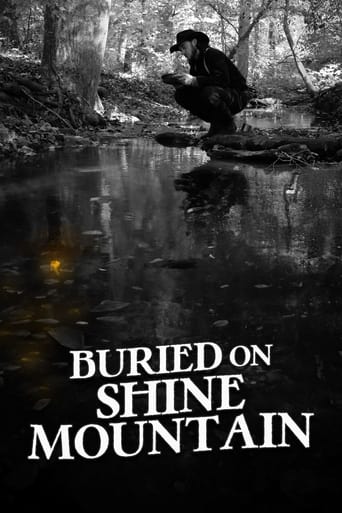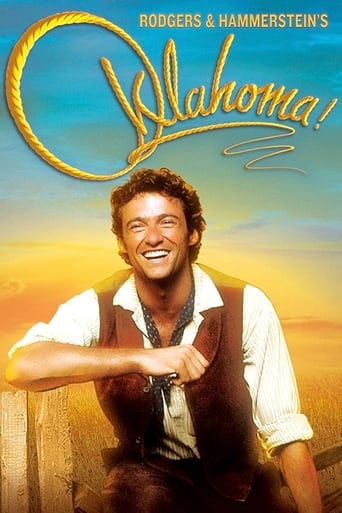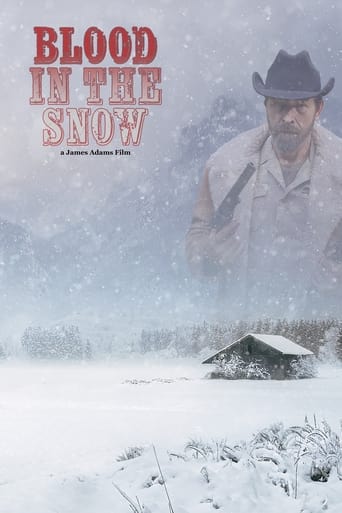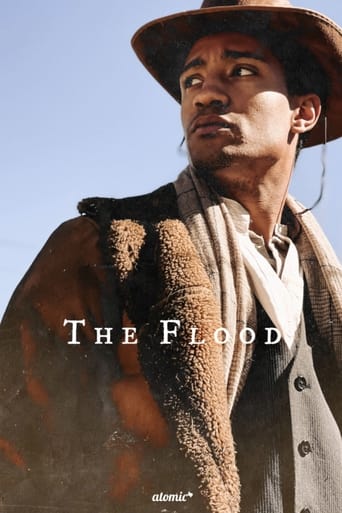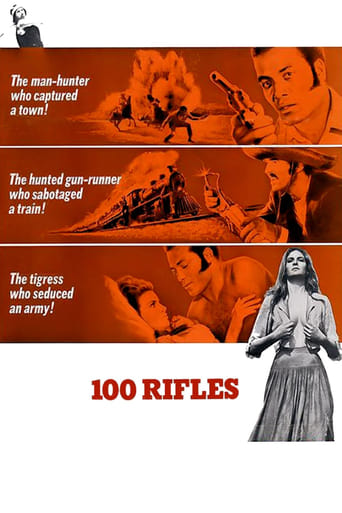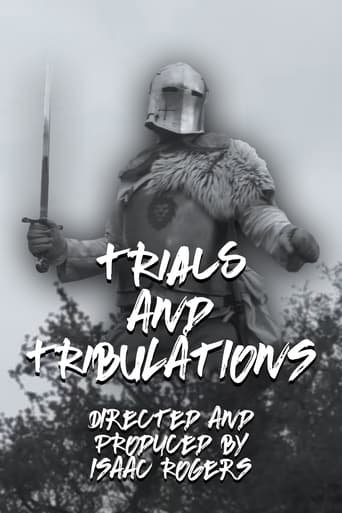The Rainmaker (1956)
Lizzie Curry is on the verge of becoming a hopeless old maid. Her wit and intelligence and skills as a homemaker can't make up for the fact that she's just plain plain! Even the town sheriff, File, for whom she harbors a secrect yen, won't take a chance --- until the town suffers a drought and into the lives of Lizzie and her brothers and father comes one Bill Starbuck ... profession: Rainmaker!
Watch Trailer
Cast


Similar titles
Reviews
There are films that age well, and there are films that age very well, so well in fact that they almost feel timeless somehow, because everything works so perfectly or near perfectly that the film feels flawless. This is not one of those films. Based on the stage play of the same name, which was loosely based on a real man, "The Rainmaker", directed by its own original stage handler Joseph Anthony, is the story of a, ahem, "plain" woman in danger of becoming an old maid, Lizzie Curry (Katharine Hepburn), her unrequited love for the town sheriff (Wendell Corey), her dysfunctional family (father H.C. played by Cameron Prud'Homme and "big brothers" the overbearing Noah played by Lloyd Bridges and Jim played by Earl Holliman, who somehow won an award for his obnoxious performance) and their encounter with a dashing, charismatic con man known as Bill Starbuck (Burt Lancaster, in what feels like a prototype for his Oscar winning role in "Elmer Gantry") who, ahem, helps Lizzie become "a real woman" unleashing her, um, true beauty or some such. He even manages to get it to rain during their drought. Overlong, slow pacing, and obvious inexperienced direction of a motion picture film (vs the live stage) result in an awkward, unpleasant soap opera that could've been better had it focused on either just the dysfunctional family or the social ramifications of the con man's effect on the town during the drought, also not helped by the very old fashioned, outdated ideology of its core characters, despite how hard it tries to be a sensitive examination of the hopes and dreams of regular people. One of the film's biggest sins is the miscasting of Katharine Hepburn as the "PLAIN PLAIN PLAIN!" Lizzie. The first obvious flaw is that Hepburn, who was pushing 50 at the time, is clearly too old for the character (everyone reacts to her as if she still has time to start a family of her own, which she very much wants), making it all the more awkward if not outrightly bizarre to watch a middle aged woman grapple with adolescent issues, as well as off setting a number of her scenes with other characters - she's supposed to be the daughter of Prud'Homme but looks and feels like she should be his wife (he was only 14 years older than Hepburn in real life - a case where an actor couldn't pull it off) and instead of a young woman full of sexual frustration in her scenes with Lancaster she feels like she should be the widow he takes advantage of. Then there's the idea that Hepburn was so ungodly unattractive that she could only ever be "PLAIN!" (which everyone, especially Bridges, keeps saying as if what they really mean is ugly), when even a middle aged Hepburn still had some beauty about her. I couldn't help being reminded of Kate's role in "Bringing Up Baby" where she also played a woman hung up on a man, and she felt just as miscast there as she does here. Perhaps some of it was her real life personality shining through, but the boy/man crazy types were never her strong suit. The other actors do what they can (Holliman is downright unbearable and will have the audience cheering every time he gets hit), but in the end the best thing about this film is Burt Lancaster. Some accuse him of being a large ham here, but at least his natural go for broke energy and charisma brings some much needed life to the dull proceedings, and he also manages to show his subtle side in his scenes with Hepburn. It's a shame these two iconic stars - both well known for their fiery, sometimes frightening personalities off camera - didn't have a better film, but in the end the film is worth a rental for their scenes together. But only for a rental.
Bill Starbuck is a cunning man that can enchant small town folks with the fake promises the products he peddles will do miracles. As we come to the story, he is trying to unload devices that will help folks with tornadoes, so prevalent in that part of the country. Unfortunately, he is found out and must flee before being arrested. The countryside in rural Texas is broiling under the strong summer sun. No rain has fallen in quite some time. The Currys, H.C., the father, Noah and Jim are at the train station to meet Lizzie, the daughter, and sibling that has gone on a trip and is coming home. The Currys are obsessed in finding her a husband. Lizzie, a woman of a 'certain age' seems resigned for her own old maid status.When Bill Starbuck arrives at the Curry ranch, he sees the three men in a field where a few dead animals lay on the ground because of the drought conditions in the area. Later, Starbuck arrives unannounced at the ranch. The Currys have invited the sheriff to come to dinner, something that was arranged to see if the lawman would click with Lizzie. The sheriff File never got over the way his wife left him for another man, so he is reluctant to begin any other relationship if he can help it.That night, Lizzie, realizing her prospects of ever getting any man interested in her, goes to the barn where Starbuck has been staying. Their meeting does not begin well, but Starbuck guesses what is causing this woman's troubles. Having a gift of gab, he convinces her she is her worst enemy and seduces her. Lizzie responds in kindness because for the first time in her life she has felt wanted for the first time in her life.Joseph Anthony directed the screen adaptation of Richard Nash Broadway play. The original cast included Geraldine Page and Darren McGavin as Lizzie and Starbuck. The film version was blessed with the unusual pairing of Katherine Hepburn and Burt Lancaster. In fact, Ms. Hepburn had starred in "Summertime", released the previous year. It was, in a way, a variation on the same theme, but in another setting and context. Lizzie was a variation of the character she had played successfully, although not in the least intentionally. The only thing the movie does not avoid is the feeling it is nothing but filmed stage play.Burt Lancaster as Starbuck deserves a lot of credit for giving his character a lot of the poetry that it required. Director Joseph Anthony got a great performance of this actor. Katherine Hepburn's contribution to the film is enormous. Her chemistry with her co-stars was one of the best things in the film. Wendell Corey, Lloyd Bridges, Earl Holliman, and Cameron Prud'Homme rounded up the cast.
To prove that he was not merely an athletic actor in the Errol Flynn mould, Burt Lancaster would occasionally dabble in film adaptations of serious stage plays from the likes of William Inge and Tennessee Williams; this is his third such attempt – albeit taken from a lesser-known author (N. Richard Nash) and with a more optimistic outcome (in fact, it was later musicalized on Broadway as "110 In The Shade")! That 1964 revamp shared with this straight film version its director Joseph Anthony, here making his first of just six efforts in that capacity. For a self-proclaimed atheist, Lancaster did his fair share of hammy, arm-waving 'preaching' on the screen and this is his first instance as such – portraying travelling con man Bill Starbuck whose "rainmaking" capabilities are just what this film's drought-ridden Southern town needs; on the other side of the coin is "plain" old- maid-in-the-making Lizzie Curry played by an overage Katharine Hepburn. I have to admit to a curious antipathy towards this most decorated of screen actresses and, indeed, her (by turns) moving and embarrassing performance here garnered nominations at the Oscars (her seventh), BAFTAs (third) and Golden Globe (second); the film itself earned a handful of other awards (Earl Holliman was named Best Supporting Actor at the Globes) and nominations (a second Oscar nod for Alex North's typically fine score; Golden Globe nods to Lancaster and the film; and another one for Nash at the Writers Guild Awards). Unsurprisingly embracing (as opposed to eschewing) its theatrical origins given the "performance" subtext that permeates the entire plot, the film has its fair share of good scenes which (apart from the opening sequence) revolve around the eight characters that seemingly inhabit this town: Wendell Corey (as the 'widowed' deputy), Lloyd Bridges (as Hepburn's equally cynical brother), Cameron Prud'Homme (as her well-meaning father), the aforementioned Holliman (as her spunky younger brother), Wallace Ford (as the elderly Sheriff) and Yvonne Fedderson (as Holliman's red-cap wearing girlfriend); the whole makes for a pleasant if not especially outstanding romantic drama about the interior beauty of lonely people. For the record, the play was later also brought to the small screen in 1982 by a past master of the medium (John Frankenheimer) with Tommy Lee Jones and Tuesday Weld in the leading roles.
"The Rainmaker" is all wet.Thanks to a badly miscast Katherine Hepburn (who is almost 50 here, and looks like she's trying to play 25-30, and a truly obnoxious performance by Earl Holliman, plus an awful directing job by Joseph Anthony turn what could have been an interesting story of how a woman discovers how to believe in herself, into a farce that is barely watchable.It seems as though Mr. Anthony did not trust the script (by N. Richard Nash, based on his play), and just told his actors that the bigger you play your roles, the better the film will be. I believe a director like Fred Zinnemann or George Stevens could have made this into a really glorious film.The story is a simple one. Bill Starbuck (played magnificently by Burt Lancaster, who looks as though he's warming up for "Elmer Gantry") is a huckster who convinces a family that for $100, he can make it rain, and thereby end a drought. What he actually does is end the drought in heart of Lizzie Curry, the daughter of the rancher who gave Starbuck the $100. He gets her to believe in herself, and in doing so he falls in love with her.The message of the film about believing in and loving yourself is very powerful. Hepburn does do a terrific job in these latter scenes. But her performance is so mannered and "over the top" in the first half of the picture, that you just don't buy the transformation.And Holliman seems as though he's about to go on auditions for "The Beverly Hillbillies" or "Hee-Haw".In the end, the film is worth seeing for Lancaster's performance only. But it is a magnificent performance.6 out of 10

